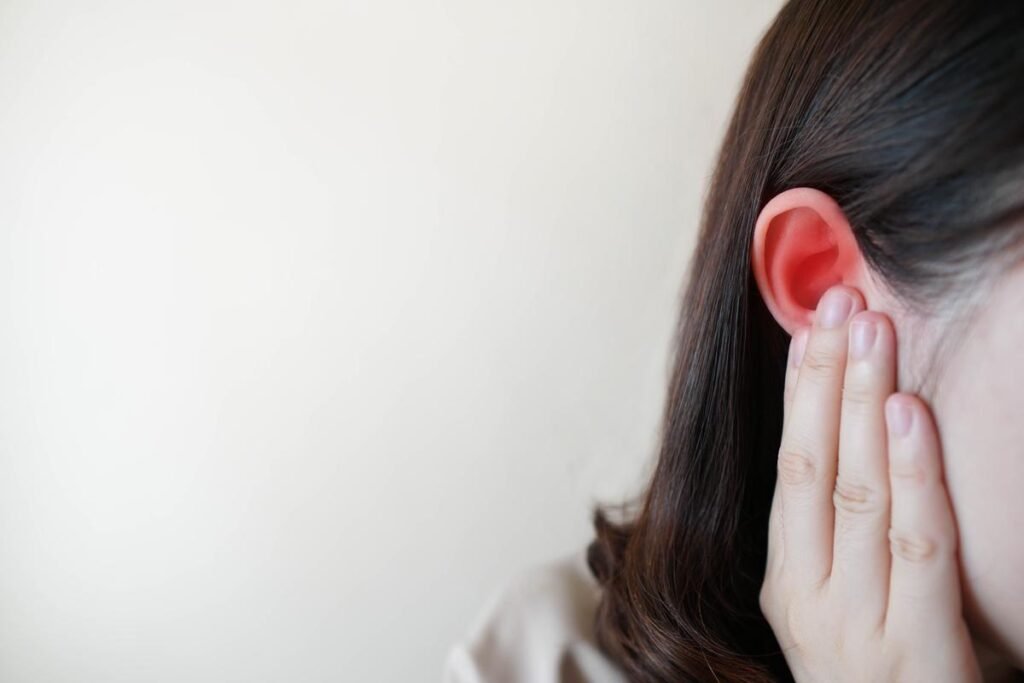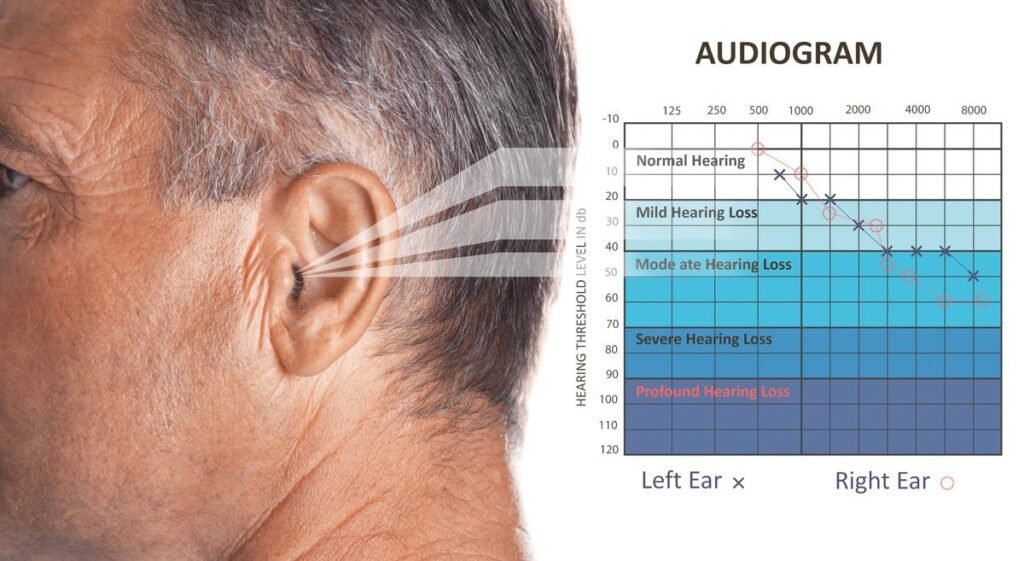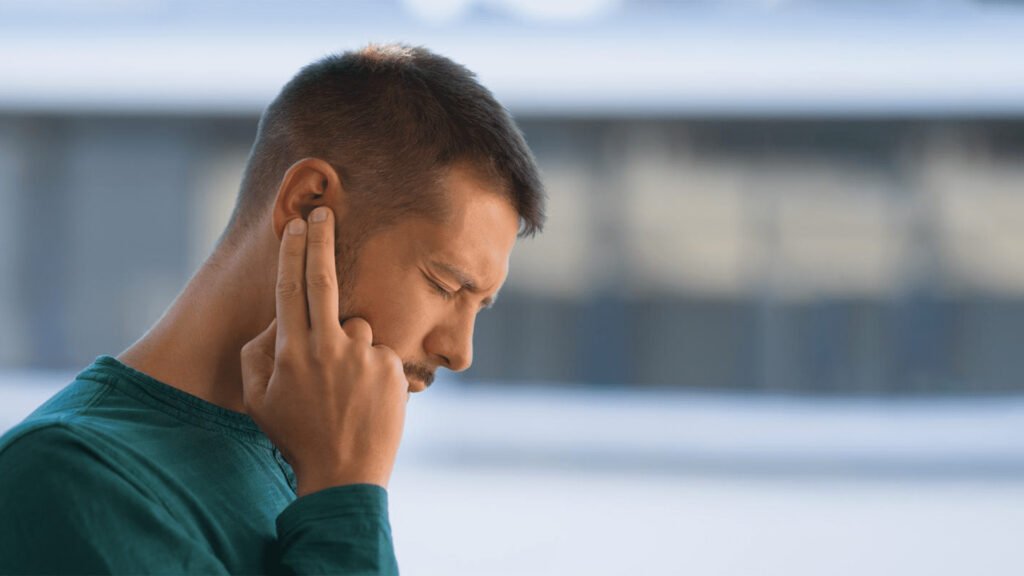Hearing Loss In One Ear
Book a Free Hearing Aid Trial


We Served 2,00,000+ Customer Across India
Single-sided hearing loss, also known as unilateral hearing loss, is when an individual experiences hearing loss in one ear while the other has normal hearing.
People with single-sided deafness face challenges in perceiving sound accurately, localizing sounds, and understanding speech in noisy environments. They may also have difficulty participating in conversations or hearing sounds on the affected side.
One-Sided Hearing Loss Causes:

- Congenital Factors: Single-sided hearing loss can be present from birth due to genetic factors or developmental abnormalities in the ear.
- Acoustic Trauma: Exposure to a sudden, loud noise or a traumatic event like an explosion can cause damage to the inner ear, resulting in one-sided hearing loss.
- Infections: Severe ear infections, such as Chronic Otitis Media, can lead to hearing loss, particularly if they are left untreated or become recurrent.
- Noise-induced Hearing Loss: Prolonged exposure to loud noises over time, such as in noisy work environments or from recreational activities, can cause hearing loss on one side.

- Head Trauma: A head injury, such as a skull fracture or traumatic brain injury, can damage the structure of the ear and lead to single-sided hearing loss.
- Autoimmune Disorders: Certain autoimmune conditions, such as autoimmune inner ear disease, can cause inflammation and damage to the inner ear, resulting in one-sided deafness.
- Medications and Ototoxicity: Some medications, such as certain antibiotics or chemotherapy drugs, can have ototoxic effects and potentially cause hearing loss, including single-sided hearing loss.
- Aging: While age-related hearing loss (presbycusis) typically affects both ears, it can sometimes manifest more prominently in one ear, leading to single-sided deafness.
One-Sided Hearing Loss Treatment

Treatment options for single-sided hearing loss depend on the underlying cause and severity of the condition. Treatment of single-sided hearing loss depends on the root cause and severity of the condition.
At Ear Logist, you can experience enhanced hearing with the best single-sided hearing aids, including CROS and BiCROS systems, and bone conduction devices, tailored to your specific needs and providing improved sound perception.
- Hearing Aids: Depending on the degree of hearing loss, individuals may benefit from wearing a hearing aid on the affected ear. Single-sided hearing machines can amplify sounds and improve speech perception, helping to compensate for hearing loss.
- CROS (Contralateral Routing of Signal) System: In cases where the hearing loss in one ear is more significant, a Contralateral Routing of Signal system may be recommended. This system consists of a microphone placed on the impaired ear and a receiver on the better ear. It transmits sounds from the impaired side to the better-hearing ear, allowing individuals to hear sounds from both sides.
- BiCROS (Bilateral Contralateral Routing of Signal) Hearing Aids: BiCROS hearing aids are similar to CROS hearing aids but are suitable for individuals with hearing loss in one ear and significant hearing loss in the other one. They combine the microphone on the impaired ear side with a hearing aid on the better ear side to provide amplification and improved hearing in both ears.
- Bone Conduction Devices: Bone conduction devices can be an option for individuals with conductive hearing loss or mixed hearing loss on one side. These devices transmit sound vibrations through the skull bone, bypassing the affected ear and stimulating the cochlea on the better ear.
- Auditory Rehabilitation: Auditory rehabilitation programs can also help individuals adapt to single-sided deafness. These programs focus on auditory training, communication strategies, and improving listening skills.
Frequently Asked Questions
What are the best single-sided hearing machines?
Some of the best single-sided hearing machines include CROS hearing aids, BiCROS hearing aids, bone conduction devices, and auditory implants.
What causes single-sided hearing loss?
The known causes of single-sided hearing loss are trauma, acoustic neuroma, viral and bacterial infections, and circulatory disorders.
How much do ear machines cost in India?
The cost of ear machines in India can vary widely depending on the type, brand, and features. It can range from as low as a few thousand rupees to several lakhs, depending on the sophistication and technology involved.
Where can I get a single-sided hearing device near me?
You can find single-sided hearing devices near you at reputable hearing healthcare providers, such as Ear Logist. Ear Logist can provide you with the ideal hearing aids for single-sided hearing loss with unrivaled services.
Can hearing loss be recovered?
In most cases, hearing loss is permanent and cannot be fully recovered. However, with the help of hearing aid devices and other assistive devices, individuals with hearing loss can significantly improve their hearing and quality of life.
